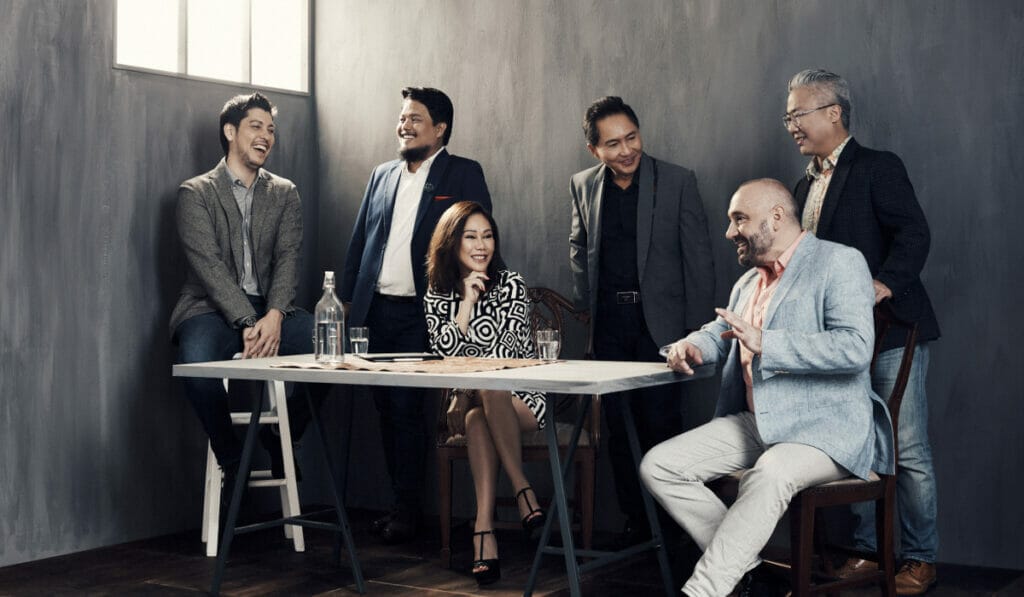What makes today’s Malaysians tick at the table? Does the pressure to plate up something new and exciting ever get overwhelming? The Peak Malaysia finds out how Kuala Lumpur’s leading chefs and restaurateurs tease and intrigue diners’ taste buds, while feeding their minds at the same time.
Chef Darren Teoh

“Look, there’s nothing romantic about foraging in Malaysia!†Chef Darren Teoh declares soon after we start talking about the exciting new ingredients he’s brought into Dewakan’s kitchen. “To find the really interesting stuff, you have to get out into the jungle and, usually, there isn’t one nearby. If there is, it’s blinking hot, so it’s more sweat than blood, sweat and tears.†Nordic Noma-esque notions aside, what he’s collected is – admittedly – rather intriguing.
“There’s a tree called kulim that, when you walk past it in the jungle, gives off the smell of roasted garlic. When the nut isn’t in season, the Orang Asli use the twigs, bark and leaves to give their cooking a garlicky flavour. It doesn’t react the same way as garlic, so we’ve had to find different ways to use it. Right now, we’re using it in one of our dishes: goat brains, which come dusted with a powder made of kulim and an indigenous mushroom called cendawan kukur.â€
It’s a brief, if telling, insight into the brilliance of Dewakan’s cooking and the creative mind behind it. Having taking root in KDU University in Shah Alam in 2015, the restaurant has attracted well-deserved attention for Teoh’s modern Malaysian cuisine, which throws a spotlight on locally sourced ingredients through menus that are thoughtfully constructed, painstakingly assembled and ambitiously presented. If there’s a chef with the ability to put Malaysia on the international dining map, Teoh may be just the ticket.
He’s a little more hesitant, however, when discussing the possibility of the Michelin Guide arriving in Kuala Lumpur, seeing as our closest neighbours – Singapore and Bangkok – already have theirs. “Malaysia isn’t a dining culture – we’re an eating culture,†is his take on the subject. “We spend about 15 to 20 minutes eating and, after that, we’re out of there. People don’t have the patience to sit down to a tasting menu or at a place with a bit of artisanal craftsmanship.â€
So is Dewakan aiming to challenge the country’s existing eating culture? “We’re trying to cook good food and use local produce, and let’s leave it at that,†comes his straightforward answer. “There’s no lofty idea of trying to change anything. We want to champion good local ingredients, yes, but it’s not about changing Malaysia. Malaysia will change when it wants to. Dewakan honours people who do other things, like those who make plates, grow vegetables or work with wood. Everything that we’ve put on our current menu is unique, different and challenging to us, and we hope people understand the narrative of these dishes.â€
Perhaps it does take someone as determined as Teoh to make us appreciate what Malaysia has to offer from a new, refreshed perspective – albeit one that’s slightly more enlightened about and respectful of the terroir itself. As he says: “We talk a lot of hustle about being a food nation, but in reality, we’re an eating nation. We don’t care where our rice or fruits come from and, often, we don’t know what we’re eating. It’s not about curiosity, it’s about knowledge. What we need is to give a damn – we should care about what we put in our mouths.â€
TEXT RENYI LIM
ART DIRECTION PENNY CHEW
PHOTOGRAPHY GERALD GOH / IMAGE ROM
PHOTOGRAPHY ASSISTANTS SAIFUL AZWAN & GEORGE CHONG
PRODUCTION SUPPORT METAL BEES
MAKE UP JOEY YAP & SHALLE LEE HAIR ANGELINE LOW


